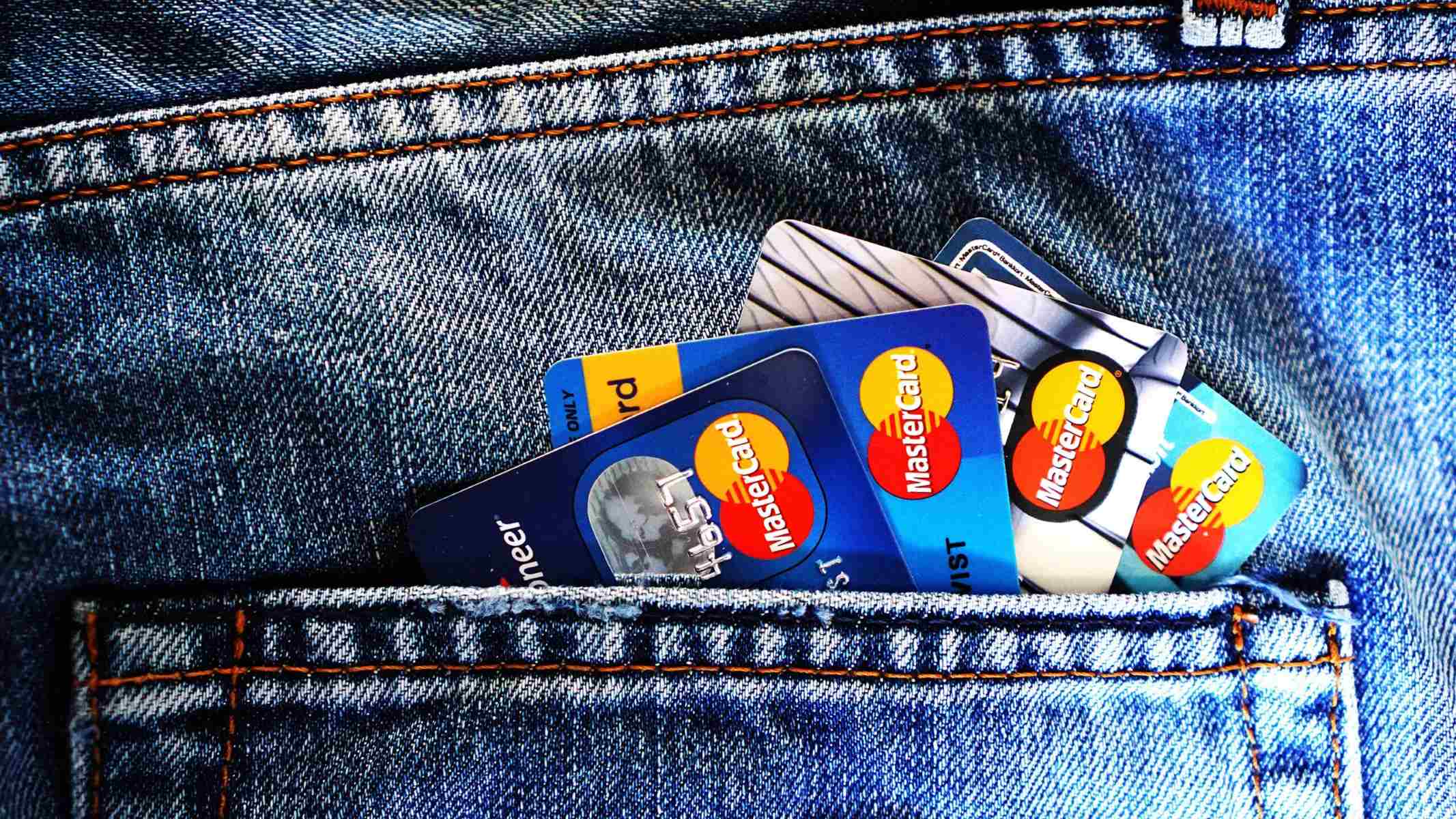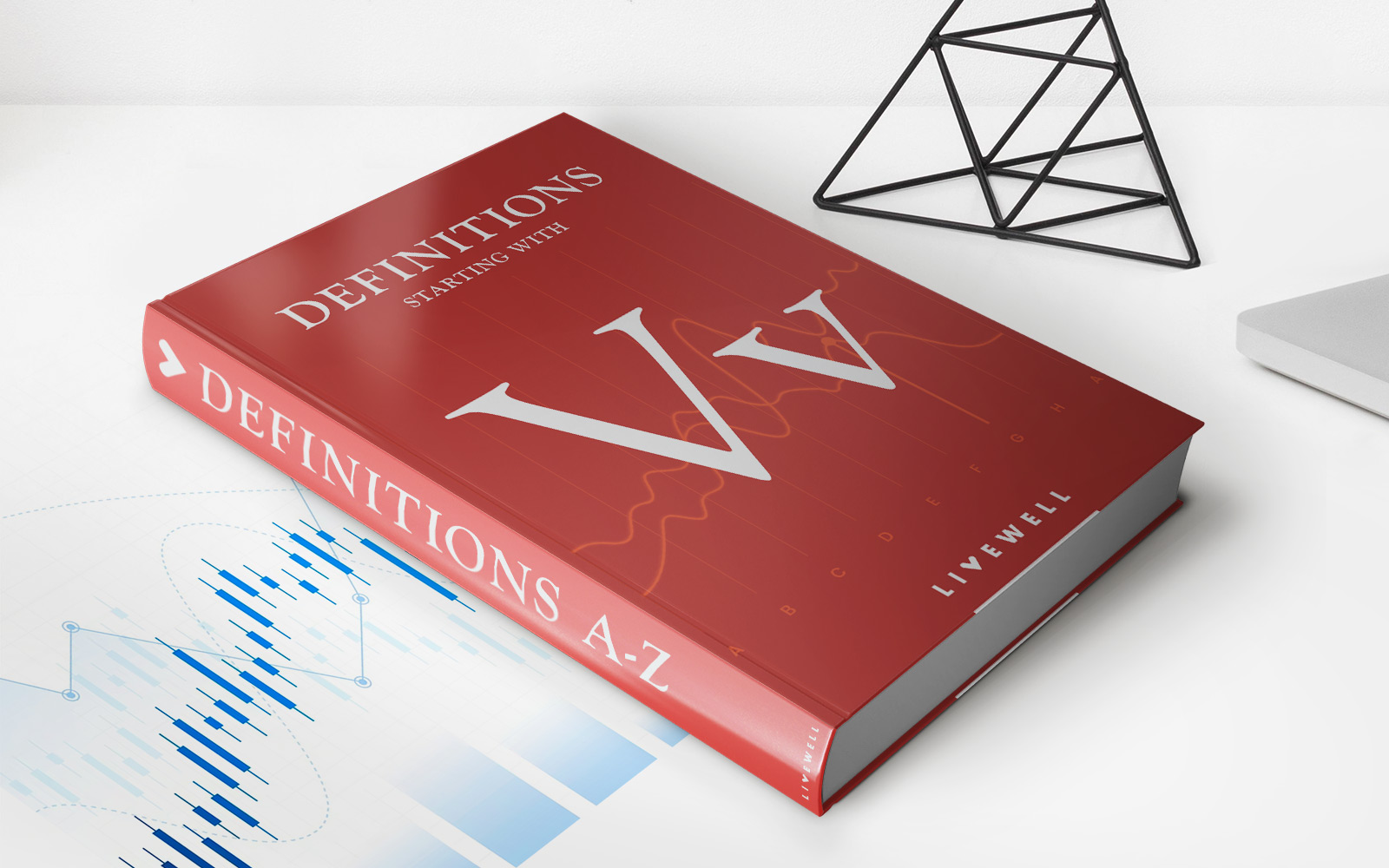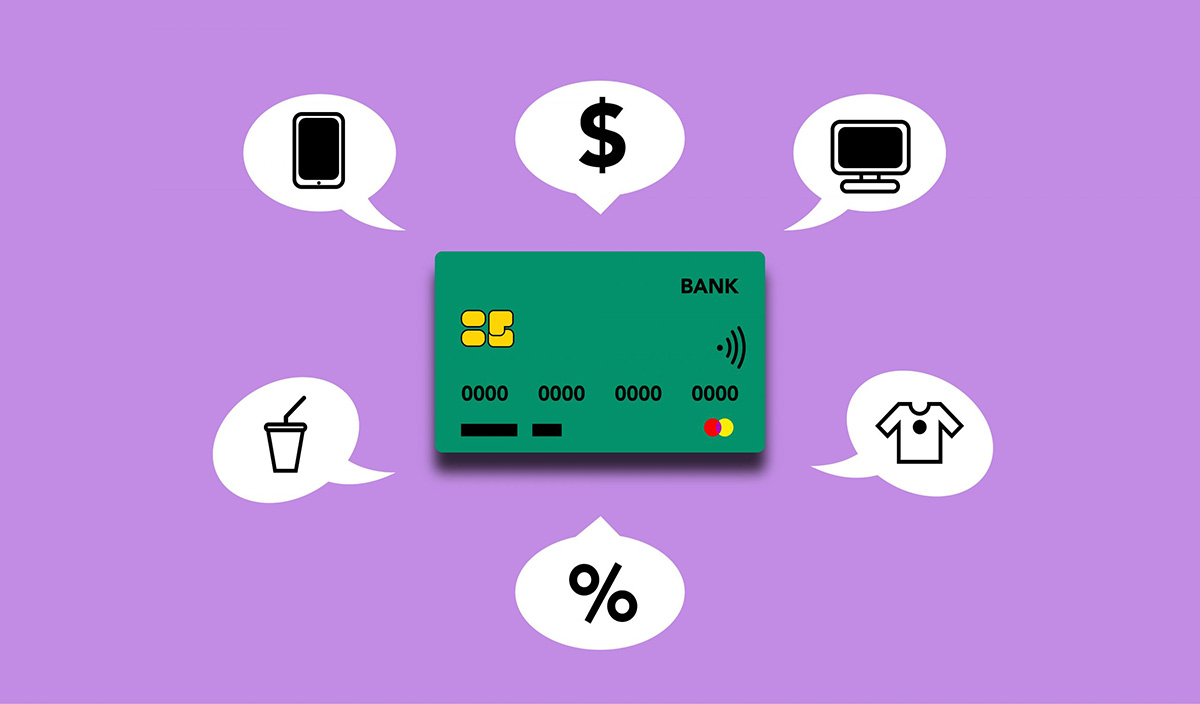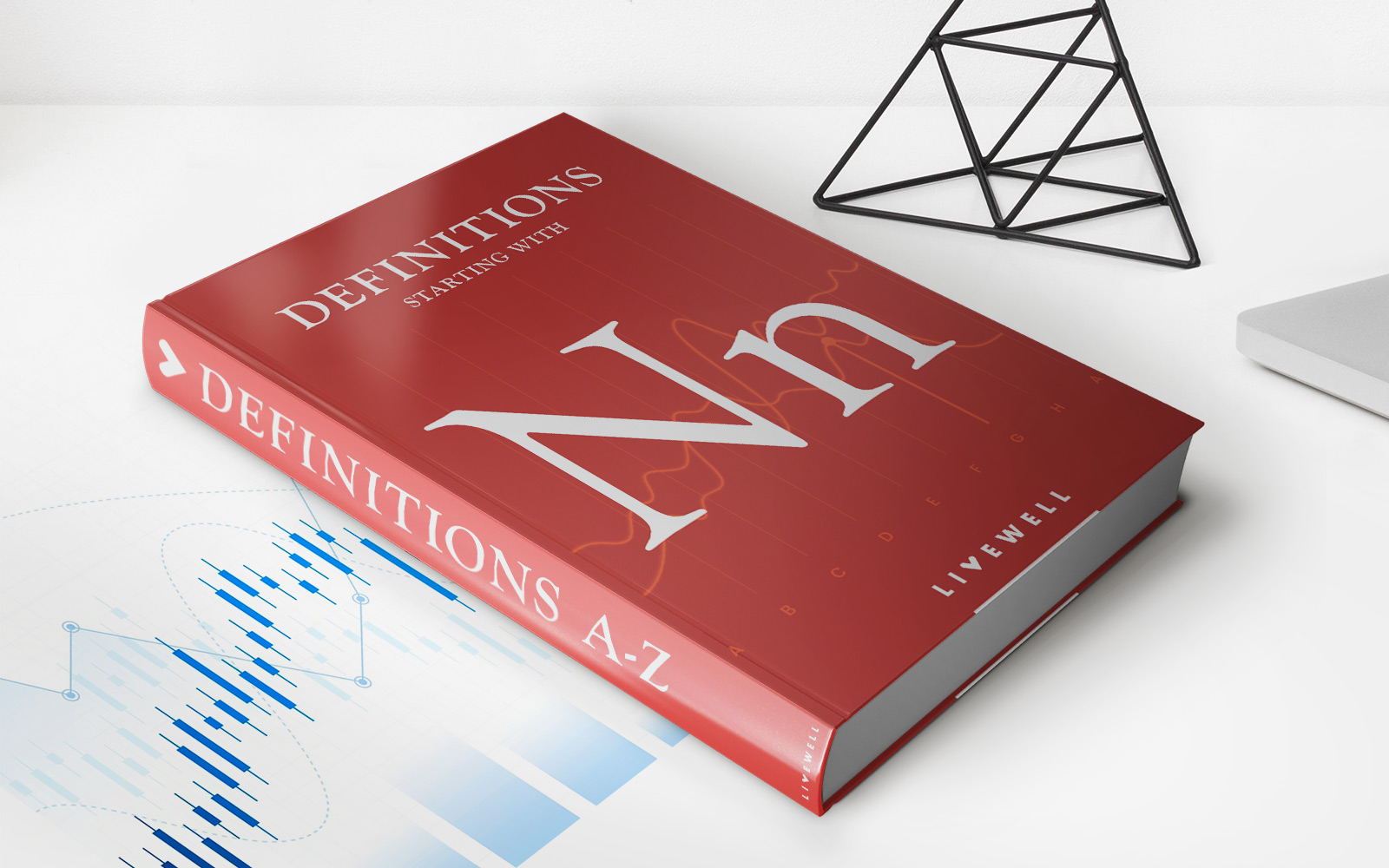

Finance
How Often Should You Open A Credit Card
Published: November 11, 2023
Discover the ideal frequency for opening a new credit card in the world of finance. Gain insights into how often you should consider applying and managing credit cards to maintain a healthy financial balance.
(Many of the links in this article redirect to a specific reviewed product. Your purchase of these products through affiliate links helps to generate commission for LiveWell, at no extra cost. Learn more)
Table of Contents
Introduction
Opening a credit card is a common financial decision that can have a lasting impact on your credit score and overall financial health. Many people wonder how often they should open a new credit card and what factors they should consider before making this decision. In this article, we will explore the various factors that you should take into account when deciding how often to open a credit card.
It’s important to note that opening a new credit card should not be done impulsively or solely for the sake of having another card. Instead, it should be a strategic decision based on your financial goals and needs. By understanding the pros and cons of opening a new credit card, you can make an informed choice that aligns with your financial situation.
Before diving into the factors to consider, it’s crucial to have a solid understanding of how credit scores work. Your credit score is a numeric representation of your creditworthiness, which lenders use to assess your likelihood of repaying borrowed money. It takes into account various factors, including payment history, credit utilization ratio, length of credit history, types of credit, and new credit accounts.
Opening a new credit card can impact two of these factors: credit utilization ratio and new credit accounts. Your credit utilization ratio is the percentage of available credit that you are utilizing. Generally, a lower utilization ratio is better for your credit score. New credit accounts, on the other hand, can temporarily lower your credit score due to the unfamiliarity with lenders.
Now, let’s dive into the factors to consider when deciding how often to open a new credit card.
Factors to Consider
When deciding how often to open a new credit card, several factors should be taken into consideration. These factors can help you determine whether opening a new card is beneficial for your financial situation. Here are some important factors to consider:
- Current credit score: Before opening a new credit card, it’s essential to assess your current credit score. If you have a low credit score, it may be best to focus on improving it before adding another credit card to your wallet. On the other hand, if your credit score is high, you may have more options and be eligible for cards with better rewards and benefits.
- Financial goals: Consider your financial goals and how a new credit card may align with them. Are you looking to build credit? Maximize rewards? Consolidate debt? Understanding your goals can help you choose a card that suits your needs.
- Spending habits: Analyze your spending habits to determine how a new credit card may fit into your financial routine. If you are a responsible spender who pays off your balance in full each month, a rewards card may be a good choice. However, if you tend to carry a balance or struggle with overspending, opening a new credit card might not be the best decision.
- Annual fees and interest rates: Take into account any annual fees associated with the credit card you are considering. Calculate whether the rewards and benefits of the card outweigh the annual fee cost. Additionally, make sure to compare the interest rates of different cards, as high interest rates can quickly negate the value of any rewards earned.
- Impact on credit score: Understand how opening a new credit card will impact your credit score. As mentioned earlier, a new credit account can temporarily lower your score. Additionally, having multiple new credit accounts within a short period may raise red flags to lenders, potentially affecting your ability to secure future loans or credit.
- Credit card utilization: Consider how a new credit card will impact your overall credit utilization ratio. Opening a new card increases your available credit, which can lower your utilization ratio if you maintain the same spending habits. However, if you tend to overspend, the addition of a new credit card may lead to increased utilization and negatively affect your credit score.
By carefully evaluating these factors, you can make an informed decision about whether to open a new credit card and determine the most suitable one for your financial situation. Remember to prioritize responsible credit card usage and consider the long-term impact on your credit and financial well-being.
Building Credit
One of the primary reasons individuals open new credit cards is to build or improve their credit. A positive credit history is essential for obtaining favorable loan terms, such as lower interest rates or higher credit limits. If building credit is your goal, here are some important considerations:
Responsible Credit Card Usage: Opening a new credit card provides an opportunity to demonstrate responsible credit card usage. This includes making timely payments, keeping balances low, and avoiding excessive debt. By consistently demonstrating these habits, you can establish a positive credit history and improve your credit score over time.
Length of Credit History: Another factor in building credit is the length of your credit history. When you open a new credit card, it becomes part of your credit history. If you have a short credit history, adding a new credit card can help diversify and lengthen your credit profile, which can have a positive impact on your credit score.
Credit Mix: Lenders like to see a diverse mix of credit types on your credit report. This includes credit cards, loans, and mortgages. If you currently have a limited credit mix, opening a new credit card can help diversify your credit portfolio and potentially boost your credit score.
Credit Limit Increases: As you demonstrate responsible credit card usage, credit card issuers may increase your credit limit. This can help lower your credit utilization ratio, which is a crucial factor in determining your credit score. A higher credit limit can also provide more flexibility and financial stability.
Authorized User: If you have a family member or trusted individual with good credit, you may consider becoming an authorized user on their credit card. This allows you to benefit from their positive credit history and establish your own credit history. However, it’s important to choose an individual who has responsible credit card usage habits, as their actions can impact your credit.
Keep in mind that building credit takes time and diligence. It’s crucial to exercise caution when opening new credit cards and only do so if you are confident in your ability to manage them responsibly. By establishing a positive credit history, you can pave the way for better financial opportunities in the future.
Utilizing Rewards
One of the most enticing benefits of opening a new credit card is the opportunity to earn rewards. Credit card rewards programs offer various incentives, such as cash back, travel points, or discounts on purchases. Here are some considerations for effectively utilizing credit card rewards:
Rewards Categories: Different credit cards offer rewards in specific spending categories, such as groceries, gas, dining, or travel. When choosing a credit card, consider your spending patterns and select one that aligns with your most frequent expenses. This way, you can maximize the rewards earned in categories that are most relevant to you.
Sign-Up Bonuses: Many credit cards offer sign-up bonuses, which typically require you to spend a certain amount within a specified timeframe. Take advantage of these bonuses when opening a new credit card, but be sure to budget accordingly to meet the spending requirement without overspending or carrying a balance.
Redemption Options: Understand the redemption options available for the rewards earned with your credit card. Some cards allow for flexible redemption, where rewards can be used for statement credits, travel bookings, or merchandise. Others may have more limited redemption options. Choose a card with redemption options that align with your preferences and financial goals.
Expiration Dates: Pay attention to any expiration dates on your credit card rewards. Some rewards programs require you to redeem your points within a certain timeframe to avoid losing them. Keep track of these dates to make sure you don’t miss out on the benefits you’ve earned.
Travel Benefits: If you frequently travel, consider a credit card that provides additional travel benefits, such as airport lounge access, travel insurance, or waived foreign transaction fees. These perks can enhance your travel experience and potentially save you money in the long run.
Optimizing Rewards: To make the most of credit card rewards, consider utilizing strategic tactics such as “credit card stacking”, where you combine multiple cards to earn rewards on different categories or utilizing promotional offers. Research and understand the program rules and restrictions to maximize your benefits.
Remember, using credit card rewards effectively requires discipline and responsible credit card usage. Avoid overspending simply to earn rewards, as the interest charges or fees can quickly outweigh the value of the rewards earned. Regularly review your spending, rewards, and statement to ensure you are getting the most out of your credit card rewards program.
Credit Utilization Ratio
Your credit utilization ratio is a crucial factor that lenders consider when assessing your creditworthiness. It represents the percentage of your available credit that you are currently utilizing. Maintaining a low credit utilization ratio is important for a healthy credit score. Here’s what you need to know about managing your credit utilization ratio:
Understanding Credit Utilization: Your credit utilization ratio is calculated by dividing your total credit card balances by your total credit card limits. For example, if you have a total credit limit of $10,000 and your current balances add up to $2,000, your credit utilization ratio is 20%.
Importance of a Low Ratio: Lenders view a low credit utilization ratio as a positive indicator of responsible credit usage. It shows that you are not overly reliant on credit and that you are managing your debts effectively. Generally, maintaining a credit utilization ratio below 30% is recommended for a healthy credit score.
Impact on Credit Score: A high credit utilization ratio can negatively impact your credit score. The higher your ratio, the more it can indicate that you may be struggling to manage your debt or may be at a higher risk of defaulting on your payments. As a result, lenders may view you as a high-risk borrower, which can lead to higher interest rates or even rejections for new credit applications.
Managing Credit Utilization: There are several strategies you can employ to manage your credit utilization ratio effectively:
- Pay Balances in Full: Paying your credit card balances in full each month helps keep your credit utilization ratio low. By doing so, you are not carrying revolving debt, which can inflate your ratio.
- Increase Credit Limit: Requesting a credit limit increase from your credit card issuer can help lower your credit utilization ratio. However, use caution with this approach, as it’s crucial to avoid the temptation to overspend with a higher credit limit.
- Spread Out Purchases: If you anticipate larger expenses, consider spreading them across multiple credit cards to keep individual credit card balances low. This can prevent a significant impact on your credit utilization ratio.
- Pay More Than Once a Month: Making multiple payments throughout the month can help reduce your credit card balances and improve your credit utilization ratio. It’s an effective method, especially if you frequently use your credit card for everyday expenses.
- Keep Unused Cards Open: Even if you no longer use a credit card, keeping the account open can help increase your overall available credit and improve your credit utilization ratio. However, make sure to monitor these inactive cards for any potential fraudulent activity.
Remember that your credit utilization ratio is a snapshot of your credit card balances at a specific point in time. By adopting responsible credit card usage habits and managing your credit utilization ratio effectively, you can contribute to a positive credit history and maintain a healthy credit score.
Credit Age
The age of your credit accounts is an important factor that lenders consider when evaluating your creditworthiness. Credit age refers to the length of time since you opened your first credit account and the average age of all your credit accounts. Here’s why credit age matters and how it can impact your credit score:
Building Credit History: Your credit history reflects your ability to manage credit responsibly. The longer your credit history, the more data lenders have to assess your creditworthiness. By building a longer credit history, you demonstrate a track record of responsible credit management, which can positively impact your credit score.
Length of Credit Accounts: The age of your individual credit accounts also plays a role in your credit score. Having well-established credit accounts, such as credit cards or loans, that have been open for a long time shows stability and responsibility. These older accounts carry more weightage in determining your creditworthiness compared to newer accounts.
Average Account Age: The average age of your credit accounts is calculated by taking the sum of the ages of all your accounts and dividing it by the total number of accounts. A higher average account age indicates a longer credit history, which is viewed positively by lenders.
Positive Impact on Credit Score: A longer credit age can have a positive impact on your credit score. Lenders prefer borrowers with a proven track record of responsible credit management over time. A well-established credit history shows that you have experience handling credit, making you less of a risk.
Managing Credit Age: There are a few strategies you can employ to effectively manage your credit age:
- Keep Old Accounts Open: It’s generally recommended to keep your older credit accounts open, even if you don’t use them regularly. Closing old accounts can reduce your average account age and shorten your credit history.
- Make Timely Payments: Consistently making on-time payments on your credit accounts helps build a positive credit history. Late or missed payments can negatively impact your credit score and credit age.
- Use Credit Accounts Occasionally: To keep your older credit accounts active, consider making occasional purchases with them and promptly paying off the balances. This demonstrates ongoing activity and responsible credit management.
- Be Selective with New Credit: Before opening new credit accounts, carefully evaluate whether they align with your financial goals. Opening too many new accounts within a short period can lower your average account age and potentially have a negative impact on your credit score.
While credit age is an important factor, it is only one aspect of your overall creditworthiness. Building good credit requires a combination of responsible credit management, consistent payments, and maintaining a good credit utilization ratio. By establishing a long and positive credit history, you can improve your creditworthiness and increase your chances of obtaining favorable loan terms in the future.
Managing Multiple Cards
Having multiple credit cards can offer convenience, flexibility, and potential rewards. However, managing multiple credit cards requires careful consideration and responsible financial habits to avoid pitfalls. Here are some tips for effectively managing multiple credit cards:
Budgeting and Tracking: When you have multiple credit cards, it’s crucial to create and maintain a budget. Keep track of your spending and payment due dates to ensure you stay on top of your financial obligations. Consider using budgeting apps or spreadsheets to help you manage and monitor your expenses across multiple cards.
Payment Organization: With multiple credit cards, it’s essential to stay organized with your payments. Set up automatic payments or reminders to ensure you never miss a due date. Late payments can lead to late fees, increased interest rates, and a negative impact on your credit score.
Utilizing Rewards Effectively: If you have more than one rewards credit card, make sure you understand and maximize the benefits of each card. Consider the specific rewards categories, redemption options, and any associated fees. Use the card that offers the most favorable rewards for each spending category to maximize your earning potential.
Monitoring Credit Utilization: When managing multiple credit cards, it’s important to keep an eye on your overall credit utilization ratio. Avoid maxing out any individual card and strive to keep your total credit utilization ratio low. High credit utilization can negatively impact your credit score and increase your risk of default.
Regularly Reviewing Terms and Conditions: Each credit card may have different terms and conditions, such as interest rates, fees, and benefits. Regularly review these terms to understand and take advantage of any changes or opportunities. Stay informed about any updates that could impact your credit card management strategy.
Consolidating Debt: If you have multiple credit cards with outstanding balances, consolidating your debt into a single card or a personal loan may help streamline payments and potentially lower interest rates. However, carefully assess the terms and fees associated with consolidation to ensure it aligns with your financial goals.
Avoiding Impulsive Spending: Having multiple credit cards can increase the temptation to spend beyond your means. Avoid impulsive purchases and focus on responsible spending habits. Before making a purchase, consider whether it aligns with your budget and financial goals.
Regularly Monitoring Your Credit: Keep a close eye on your credit reports and scores to ensure there are no errors or fraudulent activities. Monitoring your credit can help you identify and address any discrepancies promptly, protecting your creditworthiness.
Remember, managing multiple credit cards requires discipline, organization, and responsible financial habits. Carefully consider your financial situation and goals before opening additional cards, and regularly reevaluate your credit card strategy to ensure it aligns with your needs.
Potential Risks
While credit cards offer numerous benefits, it’s important to be aware of the potential risks associated with their use. Understanding these risks can help you make informed decisions and mitigate any negative consequences. Here are some potential risks to consider:
Accruing High Interest Debt: One of the biggest risks of using credit cards is the potential to accumulate high-interest debt. If you don’t pay off your balances in full each month, interest charges can quickly add up, making it challenging to pay off the debt. High levels of debt can lead to financial stress and negatively impact your credit score.
Overspending: Having access to multiple credit cards can tempt you to overspend beyond your means. It’s important to establish a budget and exercise self-discipline to avoid falling into the trap of excessive debt. Understanding your financial limits and using credit cards responsibly can help you avoid the risk of overspending.
Annual Fees and Other Costs: Some credit cards come with annual fees, which can eat into the value of the rewards or benefits they offer. Before applying for a credit card, carefully consider whether the benefits outweigh the costs. Read the fine print to understand any other potential charges, such as late payment fees, balance transfer fees, or foreign transaction fees.
Credit Score Impact: Opening multiple credit cards within a short period can temporarily lower your credit score. Each credit card application triggers a hard inquiry on your credit report, which can have an adverse effect. Additionally, if you start utilizing a large amount of credit or miss payments, it can negatively impact your credit score. Be mindful of these potential impacts and manage your credit responsibly.
Identity Theft and Fraud: Using credit cards involves the risk of identity theft and fraudulent activities. Protect yourself by regularly monitoring your credit card statements and checking for any unauthorized transactions. Report any suspicious activity to your credit card issuer immediately to minimize potential financial damages.
Negative Impact on Loan Applications: Applying for multiple credit cards and carrying high levels of debt can negatively impact your loan applications. Lenders consider your credit history and level of indebtedness when determining your eligibility for loans. Excessive credit card debt can raise red flags and make it more difficult to secure favorable loan terms or approvals in the future.
Temptation to Buy Unnecessary Items: Multiple credit cards can lead to a temptation to make impulse purchases or buy items that aren’t essential. It’s important to assess your financial needs and prioritize responsible spending. Avoid making unnecessary purchases that can further contribute to your debt load.
While the potential risks of credit card use exist, they can be managed with responsible financial habits. Paying off your balances in full each month, keeping track of your spending, and being vigilant about fraud can help protect your financial well-being. Regularly reviewing your credit reports and staying informed about the terms and conditions of your credit cards can also minimize the risks associated with credit card usage.
Conclusion
Opening a credit card can be a valuable tool for managing your finances and building a positive credit history. However, it’s essential to approach this decision with careful consideration and a clear understanding of the potential impact on your financial well-being. By weighing the factors discussed in this article, you can make an informed decision about how often to open a credit card.
Consider your current credit score, financial goals, spending habits, and the potential benefits and risks associated with opening a new card. Building credit, utilizing rewards, managing your credit utilization ratio, and considering the age of your credit are all important factors to take into account.
Remember to use credit responsibly, making timely payments, and keeping your credit utilization ratio low. Avoid the temptation to overspend and regularly review your credit reports to identify any errors or fraudulent activities.
Ultimately, opening a new credit card should align with your financial goals and serve as a tool to enhance your financial health. By using credit wisely and managing multiple cards effectively, you can leverage the benefits of credit cards while minimizing the potential risks.
As with any financial decision, it’s important to stay informed about the terms and conditions of your credit cards, regularly reassess your financial goals, and adjust your credit card strategy as needed. By doing so, you can take full advantage of the benefits that credit cards offer and maintain a healthy credit profile.














